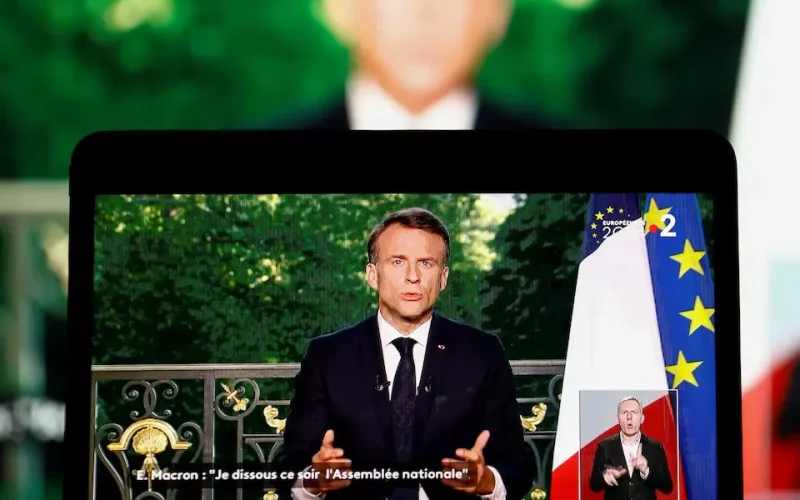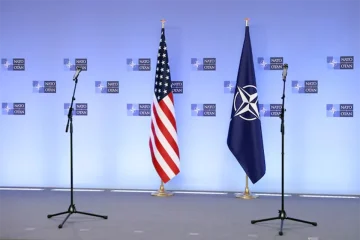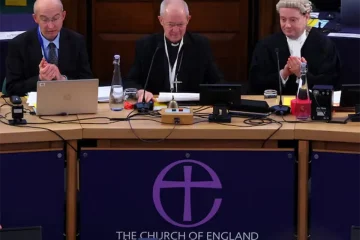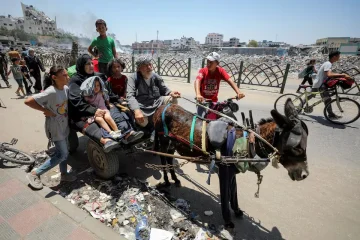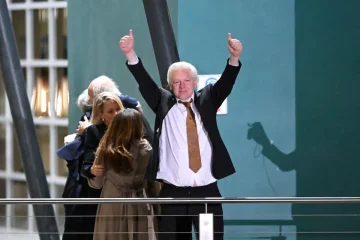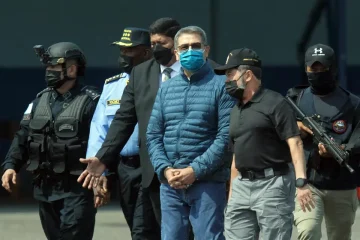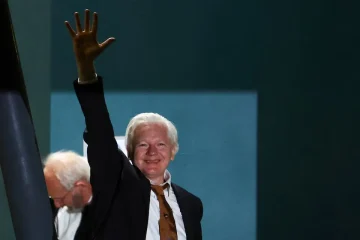FRENCH political parties were racing to field candidates and discuss possible alliances following President Emmanuel Macron’s shock decision to call a snap election after a bruising loss in Sunday’s vote for the European Parliament.
They have little time to do so, and to convince voters to back them, with the first round scheduled for June 30, less than three weeks away, and the run-off on July 7.
There is no certainty Marine Le Pen’s far-right National Rally will end up with enough seats to run the government, after trouncing Macron’s party in Sunday’s EU vote. Other scenarios include a wide-ranging coalition of mainstream parties.
But Macron’s shock decision does offer the increasingly popular far-right a real shot at power. Amounting to a roll of the dice on his political future, this immediately sent the euro down, while French stocks and government bonds tumbled.
“We’re still in shock,” Emmanuel Pellerin, a lawmaker from Macron’s Renaissance party, told Reuters. “Everything points to the RN winning a relative or absolute majority. But that forces the French to think about what is at stake.”
RN leaders were holding talks with Marion Marechal, of the smaller far-right party Reconquete party, for a possible deal that could see her join them back in some form.
Marechal is Le Pen’s niece and used to be a prominent member of her party before they fell out.
Leaders of the very divided French left – the hard left LFI (France Unbowed), Communists, Socialists and Greens – were also holding talks.
“We don’t have time to procrastinate,” Manon Aubry, of LFI, told reporters. “The objective is to be able to meet again, to build the future and above all to go and win.”
A source close to Macron said the 46-year-old leader, whose power has been diminished since he lost his absolute majority in parliament two years ago, calculated that there was a chance he could win back a majority by taking everyone by surprise.
But if Marine Le Pen’s party does take over, the source said, the gamble is that the next three years would demonstrate their incompetence to voters and undermine their bid for the presidency in 2027.
That is not without risk, that source said, adding: “I knew this option was on the table, but when it becomes reality it’s something else … I didn’t sleep last night.”
For Le Pen and the RN’s 28-year-old leader Jordan Bardella, the challenge is to transform popularity into a win at home. The vote is likely to revolve not only around discontent with Macron’s style of power, cost of living and immigration policies, but also about whether the RN can be trusted to run a major European government.
HUNG PARLIAMENT?
Another source close to Macron said the president hoped to mobilise voters who abstained from voting in Sunday’s EU election, in which the RN won nearly 32% of the vote to just 14.6% for Macron’s ticket.
The result is likely to depend on how committed leftist and centre-right voters are to the idea of blocking the far-right from power.
An unofficial poll from December showed the RN on track to double or triple its score and possibly obtain a majority.
Eurasia Group said the RN was no shoo-in for a majority, predicting a hung parliament and stalled reforms as the most likely scenario.
A source in the conservative Les Republicains (LR) party said: “What is for sure is that LR will struggle to pull itself together by June 30. Many voters will be tempted to go to Macron or Le Pen.”
Even if the eurosceptic, anti-immigration RN does score a majority in the French parliament, Macron would remain president for three more years and still be in charge of defence and foreign policy.
But he would lose the power to set the domestic agenda, ranging from economic policy to security and immigration to finances, which would in turn impact other policies, such as aid to Ukraine, as he would need parliament’s backing to finance any support as part of France’s budget.
The early election will come shortly before the July 26 start of the Paris Olympics, when all eyes will be on France.
“This will be the most consequential parliamentary election for France and for the French in the history of the Fifth Republic,” Finance Minister Bruno Le Maire told RTL radio, referring to Charles de Gaulle’s 1958 constitution, considered the starting point of modern French politics.
Among policies put forward by the party, the RN has proposed higher public spending, despite already significant levels of French debt, threatening to further raise funding costs at banks.
It also wants to expel more migrants, stop family reunification, restrict childcare benefits to French citizens, give French nationals preference in access to social housing and jobs and withdraw residency for migrants who are out of work for more than a year.
The euro fell by as much as 0.6% in early European trade, while Paris blue-chip stocks dropped by 1.6% at the opening, led by steep losses in banks BNP Paribas (BNPP.PA) and Societe Generale (SOGN.PA).

